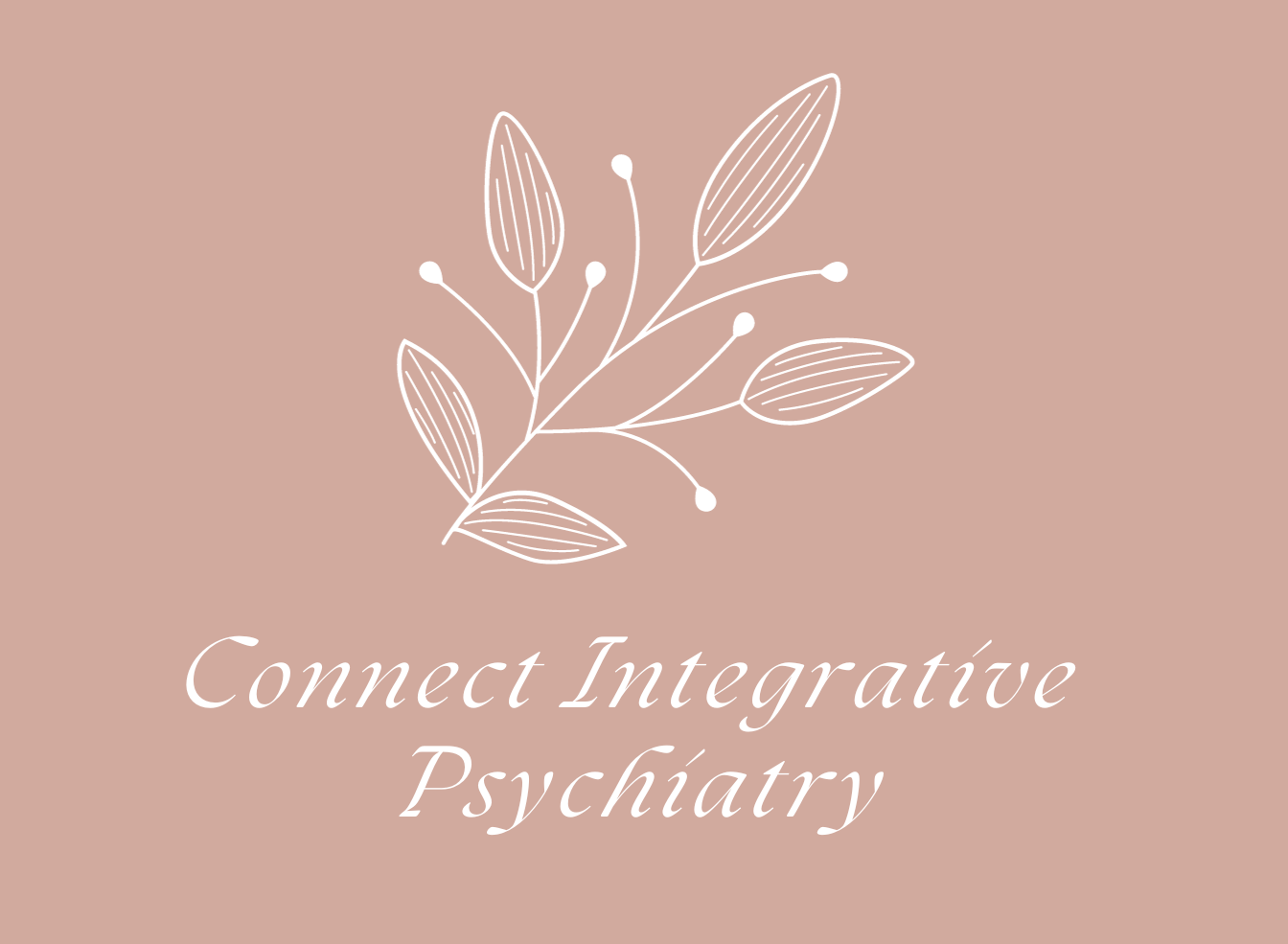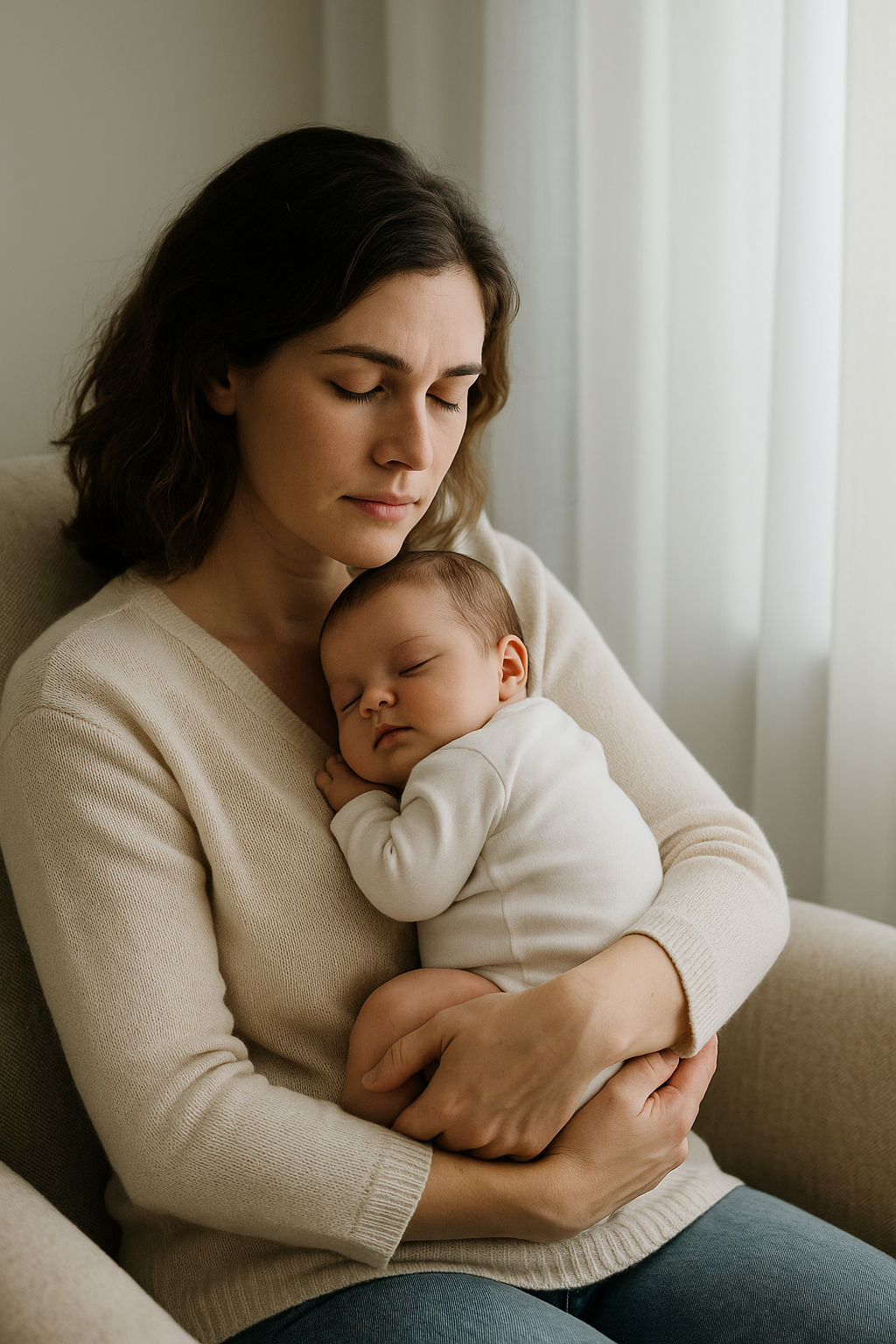Postpartum Anxiety vs. Depression — What’s the Difference?
After giving birth, many women expect to feel joy and connection — but instead, some experience fear, sadness, or overwhelming worry. While occasional “baby blues” are normal during the first couple of weeks after delivery, postpartum anxiety and postpartum depression are distinct conditions that deserve compassionate understanding and professional care.
Both can deeply affect a mother’s confidence, relationships, and sense of peace — and both can improve with the right integrative psychiatric support.
What Is Postpartum Anxiety?
Postpartum anxiety often appears as:
Constant worry about your baby’s safety
Difficulty relaxing, sleeping, or focusing
Racing thoughts, restlessness, or muscle tension
Feeling “on edge” or hyper-alert most of the time
Unlike depression, anxiety is driven by fear rather than sadness. Many women describe feeling trapped in a loop of “what if” thoughts that make rest or joy impossible. Hormonal fluctuations, lack of sleep, and a sudden sense of responsibility can all heighten these feelings.
If you notice your mind racing or your body staying tense even when everything seems fine, it may be time to reach out for help.
What Is Postpartum Depression?
Postpartum depression (PPD) can include:
Persistent sadness or emotional emptiness
Loss of interest in activities once enjoyed
Feelings of guilt, shame, or worthlessness
Difficulty bonding with your baby
Changes in appetite, sleep, or motivation
Thoughts that life isn’t worth living
PPD is not a personal failure or weakness — it’s a real medical condition that responds to treatment. Left untreated, it can impact both mother and child, but with holistic psychiatric care, healing is absolutely possible.
If you’ve been told to “snap out of it,” know that recovery requires support, not willpower.
How They Overlap
Many women experience symptoms of both anxiety and depression after childbirth. For example, sadness can coexist with excessive worry, or irritability can hide deeper exhaustion.
Recognizing the overlap allows clinicians to create tailored treatment plans — addressing both biological and emotional roots of distress. What matters most is getting help early and consistently.
The Integrative Psychiatry Approach
At Connect Integrative Psychiatry, postpartum care goes beyond symptom management.
Our postpartum treatment plans may include:
Comprehensive assessment: evaluating hormones, sleep, nutrition, and support systems
Medication management: when necessary, choosing options compatible with breastfeeding
Therapeutic counseling: drawing from attachment and interpersonal neurobiology; referral to other therapists
Lifestyle guidance: nutrition, movement, supplements, and rest to restore energy and balance
Healing after childbirth means tending to your body, mind, and spirit — with gentle, sustainable care.
📍 Explore our Integrative Psychiatry Services to learn more about this whole-person approach.
When to Seek Help
Reach out for professional support if you notice:
Your anxiety or sadness lasts more than two weeks
You feel detached from your baby or your surroundings
You avoid activities you used to enjoy
You fear being alone with your thoughts
You have a prior diagnosed anxiety, OCD, or mood disorder and are experiencing worsening symptoms
You are not alone, and you don’t have to go through this in silence. Help is available, and recovery is absolutely possible with the right guidance.
Moving Forward with Compassion
Postpartum recovery is not about “getting back to normal.” It’s about becoming whole again — mind, body, and spirit.
Through Integrative Psychiatry, you can rebuild balance, rediscover joy, and reconnect with both your baby and yourself.
💜 Learn more about our Reproductive Psychiatry Services and begin your journey toward compassionate healing today.

